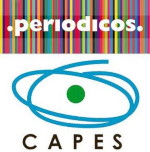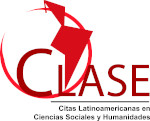Closing the future skills gap in Latin America and the Caribbean through applied learning innovation
DOI:
https://doi.org/10.26849/bts.v44i3.723Keywords:
Quality apprenticeship, Vocational Education and Training, Project-based learningAbstract
The article categorizes the skills required for the future of work identified in recent researches led by the International Labour Organization (ILO), the Inter-American Centre for Knowledge Development in Vocational Training (Cinterfor) and other institutions. Then, recommends that the skills gap in the labor market of Latin America and the Caribbean can be narrowed by innovation in the Vocational Education and Training institutions. For this effort, propose that problem-based learning and quality apprenticeships pedagogies are fundamental teaching methods for student’s achievement in soft skills.
Downloads
References
AXMANN, M. Quality apprenticeships: a practical approach for Latin America and the Caribbean. Montevideo: ILO/Cinterfor, 2018. Forthcoming.
BUSSO, M.; AMBRUS, S. Latin America, the Caribbean and PISA: the long road ahead. In: IDB. Ideas matter. [S.l.], Dec. 13, 2016. Disponível em: <https://blogs.iadb.org/ideasmatter/2016/12/13/latin-america-the-caribbean-and-pisa-the-longroad-ahead/>. Acesso em: 21 nov. 2018.
CALVO SANTANA, A.; COTO CALDERÓN, J. A.; VARGAS JIMÉNEZ, L.
Capacidades actitudinales por incorporar en la formación profesional basada en competencias laborales del INA. San José: Instituto Nacional de Aprendizaje, 2016.
CASTRO, C. M.; NAVARRO, J. C. Will the invisible hand fix private higher education in Latin America? Ensaio: avaliação e políticas públicas em educação, Rio de Janeiro, v. 25, n. 96, p. 770-797, 2017.
CINTERFOR. El futuro de la formación profesional en América Latina y el Caribe en el SXXI. Montevideo, 2016. Unpublished research report. COMISIÓN DEL SISTEMA NACIONAL DE CERTIFICACIÓN DE COMPETENCIAS LABORALES (Chile). Catálogo de competencias transversales para la empleabilidad. Santiago: Chilevalora: Sence, 2015.
ECLAC. Structural change for equality: an integrated approach to development: Thirty-Fourth Session of ECLAC. San Salvador: Eclac, 2012.
INTERNATIONAL LABOUR OFFICE. Employment and social protection in the new demographic context. Geneva: ILO, Apr. 2013.
INTERNATIONAL LABOUR OFFICE. Overview of apprenticeship systems and issues: ILO contribution to the G 20 task force on employment. Geneva: ILO, Nov. 2012.
JONASSEN, D. Designing constructivist learning environments. Instructional-Design Theories and Models, [s.l.], v. 2, p. 215-239, 1999.
KNOLL, M. The project method: its vocational education origin and international development. Journal of Industrial Teacher Education, Blacksburg, VA, v. 34, n. 3, p. 59-80, Spring 1997.
KOLB, D. A. Experiential learning: experience as the source of learning and development. Englewood Cliffs: Prentice Hall, 1984. p. 20-38.
LERMAN, R. Do firms benefit from apprenticeship investments? IZA World of Labour, Bonn, May 2014.
MELGUIZO, Á.; PEREA, J. Mind the skills gap!: regional and industry patterns in emerging economies. Paris: OECD Publ., 2016. (OECD Development Centre Working Papers, n. 329).
MERRILL, M. D. First principles of instruction. Educational Technology Research and Development, Heidelberg, v. 50, n. 3, p. 43-59, 2002.
OECD. Getting skills right: Chile. Paris: OECD Publ., 2018.
OGUZ-UNVER, A.; ARABACIOĞLU, S. A comparison of inquiry-based learning (IBL), problem-based learning (PBL) and project-based learning (PJBL) in science education. Academia Journal of Educational Research, v. 2, n. 7, p. 120-128, July 2014.
PRINCE, M. Does active learning work?: a review of the research. Journal of Engineering Education, v. 93, n. 3, p. 223-231, 2004.
RINCON, H. Pasado, presente y futuro de la formación pasada en proyectos en el SENA. Bogotá: Sena, 2018.
SALAZAR-XIRINACHS, J. M.; VARGAS ZÚÑIGA, F. The future of vocational training in Latin America and the Caribbean: overview and strengthening guidelines. Montevideo: OIT/Cinterfor, 2017.
THOMAS, J. W. A review of research on project-based learning. San Rafael, CA: Autodesk Foundation, 2000.
VAN BUER, J. Transdisciplinary skills: new perspectives for old virtues between acquisition of skills and profession. 2013. Conference presentation.
VARGAS ZUÑIGA, F.; CARZOGLIO, L. La brecha de habilidades en América Latina: desencuentros y hallazgos. Montevideo: OI/Cinterfor, 2017.
WORLD ECONOMIC FORUM. Towards a reskilling revolution: the future of jobs for all. In collaboration with The Boston Consulting Group. Geneva: World Economic Forum, Jan. 2018.
How to Cite
Issue
Section
License
Commitment to the Provision of Creative Commons Licensing
The Senac Journal of Education and Work is per the BY NC license, free of charge and with no commercial purpose.
In submitting their work for evaluation, the authors undertake to make their work available through the Creative Commons-BY NC license at the website <https://br.creativecommons.org>, thus dispensing with the need for signing any other document or contract with Senac to regulate the availability of their works in the Senac Journal of Education and Work.
The author (s) further declare that they recognize the Senac Journal of Education and Work as an open access journal, whose Policies and Authors Guidelines are available to know on its official website, namely - www.bts .senac.br - and that they can be modified at any time, and immediately any new condition published online.
The names and addresses informed in this journal will be used exclusively for the services provided by this publication and are not available for other purposes or to third parties.




















